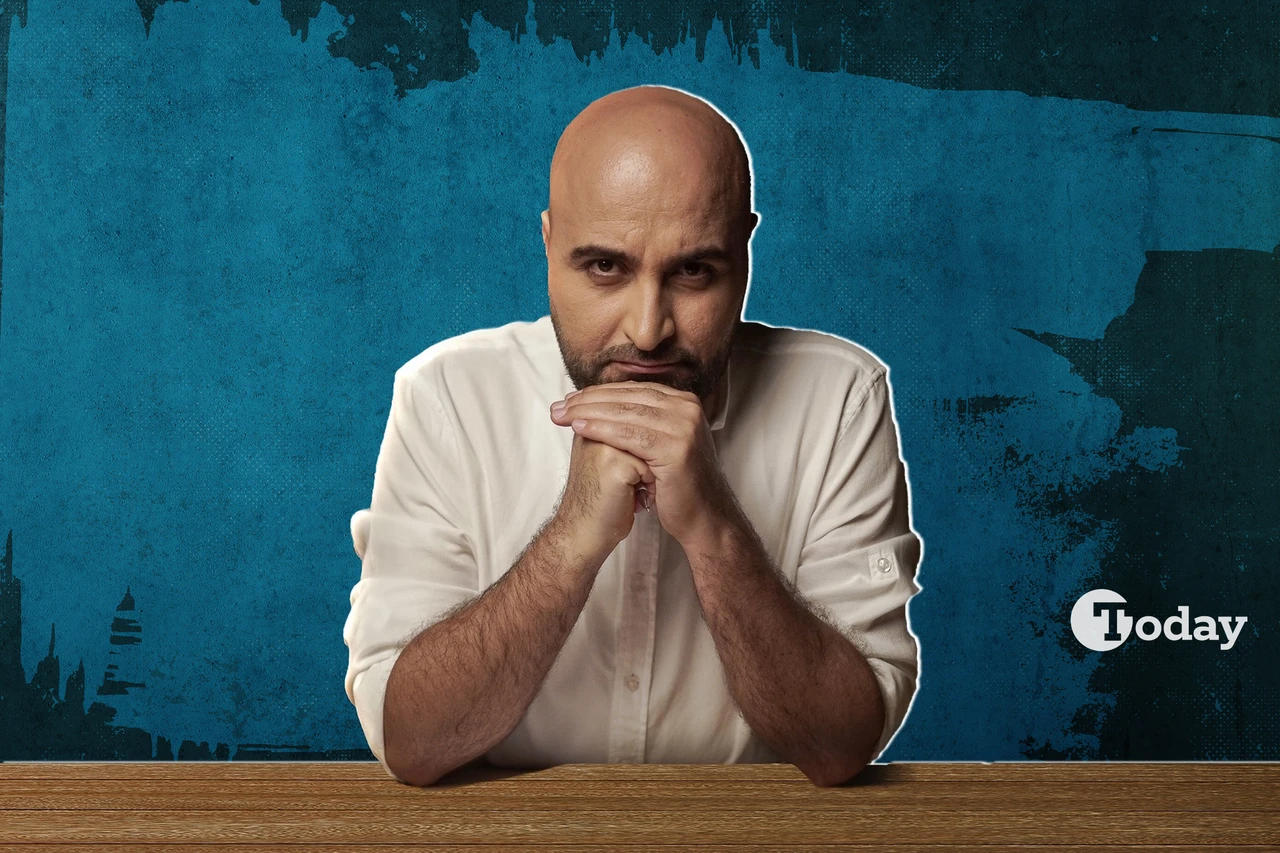Interview: Syrian journalist explains why residents resist against PKK/YPG terror group
 Journalist Qutayba Yasin. (Collage by Mehmet Akbas/Türkiye Today)
Journalist Qutayba Yasin. (Collage by Mehmet Akbas/Türkiye Today)
Qutayba Yasin, a Syrian journalist working with Syria TV, shared an account of the developments in Deir ez-Zor during an exclusive interview with Türkiye Today. Drawing on testimonies from witnesses on the ground, he also discussed Sednaya Prison and the situation of Syria’s Christian community.
Known for his coverage of Syrian issues, Yasin is followed by many for his insights into the country’s socio-political landscape.
Deir ez-Zor
Addressing the question of whether the Arab population in Deir ez-Zor is arming themselves currently, Yasin was unequivocal: the region is entrenched in resistance against the Syrian Democratic Forces (SDF). “Deir ez-Zor is a tribal, conservative and entirely Arab region. It has categorically rejected the presence of the SDF, which is seen as an external force,” he asserted.
The people of Deir ez-Zor have unequivocally rejected the SDF’s presence in their areas,
Qutayba Yasin
The experienced journalist described the SDF’s leadership as foreign, primarily linked to Qandil, and accused it of imposing ideologies unfamiliar to the local populace. He pointed out that while the SDF claims to include Syrian Kurds, many of its leaders are of foreign origin, aligning ideologically with Abdullah Ocalan, the imprisoned so-called leader of the PKK. The SDF is essentially a rebranding of the YPG/PKK, operating largely as the same organizational structure under a new name.
“Many of these leaders don’t even speak Arabic. They’re not Syrian. Their identities are different, just like Ocalan, who is also not Syrian. You’re occupying my area and raising the pictures of a terrorist—a wanted person imprisoned for crimes of terrorism. How does that make sense?” Yasin asked.
He drew historical parallels to the French occupation of the past, where leadership was foreign, even if the foot soldiers were local. “The same logic applies here,” he noted.
“This is the same scenario with the SDF. It’s an occupation by a foreign force, imposing itself on a region, raising symbols of people we don’t recognize, and teaching ideologies foreign to us, such as Ocalan’s thoughts and principles,” he emphasized, saying, “This is an outright occupation, clearly.”
Resource-rich region resists control
Yasin also highlighted the region’s strategic importance, emphasizing that Deir ez-Zor is not just culturally significant but also economically vital to Syria. Known as the country’s breadbasket and home to substantial oil reserves, Deir ez-Zor represents a key resource hub.
“Deir ez-Zor is one of the richest provinces in Syria. It’s an oil-rich area and plays a vital role in feeding the nation. The people there will not allow it to be abandoned to the SDF militias,” Yasin stressed, adding: “The people of Deir ez-Zor are tough; no one can impose anything on them. They’re fierce.”
He confirmed reports of arming within the region, pointing to the involvement of local tribes and military operations aimed at resisting the SDF.
Christians in Syria
In contrast to the tensions in Deir ez-Zor, Yasin spoke optimistically about Syria’s Christian community. Reflecting on a recent conversation with a bishop in Aleppo, he described a resilient and hopeful outlook among Christians in Syria.
“The bishop in Aleppo I spoke with sees this as one of the best periods for Christians and the country as a whole,” Yasin revealed.
He noted the bishop had released a statement encouraging Christians who had left Syria to return, underscoring the community’s enduring role in the nation’s social fabric.
“I conducted an interview with the bishop, which will air tonight on Syria TV,” Yasin shared, adding that the bishop’s optimism was palpable.
“He’s more hopeful than even we are. His perspective is that Syria is gradually regaining stability, and the Christian community has a significant role in shaping the nation’s future.”
Yasin expressed his agreement with the bishop’s sentiments, stating that he shares the view that Christians have nothing to fear and much to contribute to Syria’s recovery.
Sednaya Prison: Factory of death, torture
Discussing the notorious Sednaya Prison, Yasin painted a harrowing picture of systematic brutality. “Some claim the reports are exaggerated, but the truth is, Sednaya is a factory of death and torture. There’s no debate about that,” he said.
Drawing on years of documenting detainee cases and survivor testimony, Yasin revealed the grim fate of most detainees, stating that many perished under torture.
Yasin also referenced the infamous Caesar photographs, which expose the regime’s meticulous documentation of victims. “They number and catalog the deceased. Most are buried in mass graves using heavy machinery,” he explained.
While stories about underground levels and secret tunnels might offer a glimmer of hope to some, Yasin emphasized the cold reality: “the vast majority of detainees did not survive.”
“The regime’s systematic brutality has claimed countless lives, and most of the victims were buried in mass graves. That’s the cold, hard reality I’ve come to know after years of working on this issue.” Yasin concluded, underscoring the tragic truth of Sednaya Prison’s legacy.



